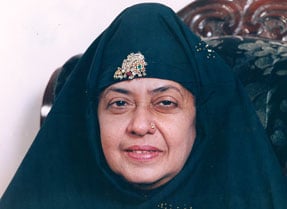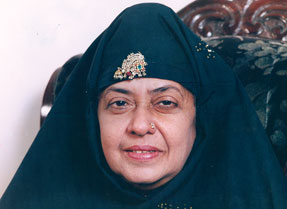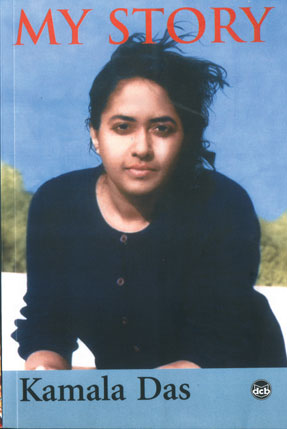Arts
Bard Of The Bedroom?

| “My grief fell like drops of honey on the white sheets on my desk. My sorrow floated over the pages of magazines darkly as heavy monsoon clouds do in the sky…” —Kamala Das in My Story.
Yes, and I recall playing weatherman. I was just out of college, writing occasional pieces as a freelancer for a small-time youth magazine. Its editor, a rotund, balding and perennially perspiring young man, summoned me to his office one day, thrust a pre-release copy of My Story into my hands with the kind of furtiveness reserved for the transfer of contraband goods, and hissed, “This is the autobiography of Kamala Das. Absolute dynamite! You know Kamala Das?” I told him no, not personally, but I’d read her poems. “Good,” he said. “Get me a review of this book by next Monday.” It was the mid-1970s, the days of political and social upheaval that saw Indira Gandhi’s Emergency and her subsequent downfall, and the rise of Indian feminism. But until then, feminist ideas existed only in the abstract theoretical treatises penned by intellectuals, their discussions restricted to long-faced impersonal seminars or the occasional Times of India editorial. And, for the record, you had the nation’s most famous flower-child Protima Bedi streaking brazenly across a parking lot in downtown Bombay — with a photographer in tow!
My Story, however was deeper, and much more primal. The rebellion came through like a bolt of lightning. It spoke in the personal voice of a woman talking straight and with unalloyed frankness about her own private life, recounting her angst as a wife who was sexually exploited but emotionally unfulfilled, laying bare her soul before the world, warts and all. Unfortunately but not unexpectedly, the warts got all the attention. Salivating reviewers and readers alike took a prurient interest in the “hot parts” of the book, which made it an instant bestseller. But even those parts weren’t anywhere like the pornographic stuff devoured by hormonally charged teenagers in school and college. True, they were accounts of extra-marital affairs — even some homoerotic ones —but they all had a deep undertone of sadness and resignation. There was an unmistakable poetry in the book’s prose, a liberating and cathartic abandon hitherto unseen among English-language works by Indian women. Having an affair was one thing, not exactly encouraged, but something akin to a skeleton stuffed guiltily into the family closet of unspoken secrets. Writing about it though, and that too without camouflaging it as fiction, was an absolute taboo. Phew! This female Indian writer had trespassed into forbidden areas. “I am every / Woman who seeks love…” — Summer in Calcutta. “Gift him all, Gift him what makes you woman, the scent of Long hair, the musk of sweat between the breasts, The warm shock of menstrual blood, and all your Endless female hungers…” — The Looking Glass. The image stuck. For an entire generation of Indians who came of age reading the English-language works of their compatriots, Kamala Das was the temptress with a pen, the bard of the bedroom. And the word, spoken not written, had spread so wide that even those who’d never read a single word of her poetry or prose, assumed the worst. You could never mention her name in most middle-class drawing room conversations those days without inviting winks and knowing looks from people who ironically knew nothing about her writing. So much for the mentality — and morality — of much of the Indian middle class. But for those — like this writer — who were privileged to know her as a person and as a friend, Kamala Das was a revelation, as were her evocative short stories — most of them unpublished — her nude paintings, her efforts to convince young people to get politically organized. Unlike other celebrities, she was generous with her time, even for the wannabe campus poets of those days who were more eager than talented. She was even more generous and impulsive with her gifts — in cash and kind, and especially for the needy — a habit which, she told me, nearly pauperized her family and drove her into writing her serialized autobiography from a hospital bed to pay her medical bills.
I first met Kamala Das in 1979. I’d taken over as editor of Mirror magazine and, keen to rev up its indifferent circulation, had convinced the otherwise tight-fisted publisher into loosening his purse-strings for big-name writers. Kamala Das then lived in Bombay with her banker husband, and I cajoled a common friend into arranging a meeting. The evening I landed at her apartment happened to be the day of her monthly adda — an open house for all sorts of people to lounge in her spacious living room, sip tea and perform, read out their works, or simply exchange ideas. Every person had to do something — you couldn’t merely sit around as a passive spectator. I was seated next to Raghava Menon, the Delhi-based music critic who was a distant relative of hers and had written a book on K.L. Saigal. Menon sang a Saigal song. My turn was next. She turned her heavy-lidded gaze toward me, smiled like an indulgent mother, and nodded. I belted out a Jagmohan number. Kamala was impressed, not so much by the singing (I’m not sure she was musically inclined), but by the fact that a young man in his mid-20s had chosen a vintage 1940s song. It was the start of a year-long association. I confessed right at the start that I was interested primarily in getting her byline into my magazine, that I wanted to “use” her name as a writer to boost circulation. “Sure, use it,” she agreed. But she had no ready topic to write on. She came up with a solution: “Why don’t we meet as often as possible, and just talk? Maybe something will emerge from it.” A cover-story idea did emerge from our long talks. It was her heart-rending piece called “The Guilt of Abortion.” The Medical Termination of Pregnancy Act, enacted in the early 1970s to prevent quacks from endangering the health of pregnant women, had become the focus of public debate after an astonishingly sharp rise in “legal” abortions across India. I told Kamala I would rather leave its political and sociological analysis to the more “serious” journals, and focus instead on the personal question of what an abortion meant to a woman. “Just my kind of story,” she said. “I know the guilt of abortion.” I was dumbstruck, and didn’t dare to probe further. Was I playing Bhootnath to her Chhoti Bahu from the cult film Sahib, Bibi aur Ghulam? Over time, we drifted apart. Our meetings became less frequent, and briefer. As the magazine’s circulation grew, so did my responsibilities. And I realized I was meeting her more as a friend exchanging notes on life, than as an editor angling for story ideas. Her health too did not allow much socializing. The last time we met was to finalize the winner of Mirror’s poetry contest in 1981. She was a judge, along with Nissim Ezekiel and Dom Moraes, and impressed us with her sharp, insightful evaluations. For someone with minimal formal education, she possessed an extraordinarily refined, albeit intuitive, sense of the writing craft. I told her so. “Oh, it’s nothing,” she responded dismissively. “You read some, you write some, and it comes.” Ultimately, the public perception of Kamala Das as a controversial figure had a lot to do with the inability of analysts to neatly categorize this confusing bundle of contradictions. A woman liberated in spirit, who hated feminists and their brand of freedom, and looked upon her husband as her only real companion. A blue-blood Malayalee Nair who bloomed in the rustic environment of Kerala, but admitted that her best poems were written in the bustling cauldron of Bombay. A woman self-indulgently in love with the concept of love, fascinated by the Radha-Krishna bonding, deeply believing in the power of mantras, yet convinced that all religions had crossed their expiry dates — only to convert to Islam before her death. She was blessed, however, with unconditional love and support from her family. Her husband glowed in her presence, and openly thought she was the world’s best writer. Her sons protected the widowed poet from barbs over her conversion. “She is our mother whether she is a Hindu or Christian or Muslim,” one of them asserted. “We would be with her all the time.” “…Why not leave Me alone, critics, friends, visiting cousins, Every one of you? Why not let me speak in Any language I like? The language I speak Becomes mine, its distortions, its queernesses All mine, mine alone.” — An Introduction. Farewell Kamala, and rest in peace. The world will bother you no more. |


